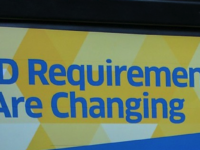Bill C-26, alternately described as a cyber-security, critical infrastructure or telecom bill, remains largely below the radar screen despite its serious implications for privacy, expression, and affordable network access. The bill is currently being studied at a House of Commons committee that seems more interested in partisan political gamesmanship rather than substantive hearings. Kate Robertson is lawyer and senior research associate at the Citizen Lab in the Munk School at the University of Toronto who is a former criminal counsel and the co-author of one of the most extensive Bill C-26 committee submissions. She appeared last week at the committee studying the bill, but with limited opportunity to engage on the issues, she joins the Law Bytes podcast to talk about the bill, the concerns it raises, and some of the potential fixes.

Wiertz Sebastien - Privacy by Sebastien Wiertz (CC BY 2.0) https://flic.kr/p/ahk6nh
Privacy
Bill S-210 is Just the Beginning: How a Canadian Digital Lobby Group is Promoting a Standard to “Foster Widespread Adoption of Age Verification Technologies in Canada”
This week’s Law Bytes podcast features a revealing discussion with Senator Julie Miville-Dechêne, the chief architect and lead defender of Bill S-210 or the Protecting Young Persons from Exposure to Pornography Act. It may be the most dangerous Internet bill you’ve never heard of since it contemplates measures that raise privacy concerns, website blocking, and extend far beyond pornography sites to include search and social media. The bill started in the Senate and is now in the House of Commons, where last year Conservative, NDP, and Bloc MPs voted alongside a small number of Liberal MPs in favour of it at second reading and sent it to committee for further study. The government has called the bill “fundamentally flawed”, but there may be sufficient House support to turn it into binding legislation.
While Senator Miville-Dechêne emphasizes stopping underage access to sexually explicit material and her view that that goal merits site blocking and mandated age verification even for some uses of Google and Twitter, a new standards initiative suggests that some envision far more extensive use of mandated age verification systems. The Digital Governance Council is one of several Jim Balsillie-led organizations focused on influencing government digital and innovation policy. Its CEO is Keith Jansa, who Senator Miville-Dechêne identified in the Law Bytes podcast as her source for providing assurance of the privacy safeguards in the bill.
The Law Bytes Podcast, Episode 190: Debating Bill S-210 – Senator Julie Miville-Dechêne Defends Her Internet Age Verification Bill
I’ve described Bill S-210, the Protecting Young Persons from Exposure to Pornography Act, as the most dangerous Internet bill you’ve never heard of as it contemplates measures that raise privacy concerns, website blocking, and extend far beyond pornography sites to include search and social media. The bill started in the Senate and having passed there is now in the House of Commons, where MPs voted in favour of it at second reading and sent it to committee for further study. Senator Julie Mivelle-Dechêne is the chief architect and lead defender of the bill. A former Radio-Canada broadcaster who was appointed to the Senate by Justin Trudeau in 2018, she joins the Law Bytes podcast to debate her bill as she provides her rationale for it and defends against the criticism and concerns it has sparked.
The Law Bytes Podcast, Episode 189: The Year in Canadian Digital Law and Policy and What Lies Ahead in 2024
Canadian digital law and policy in 2023 was marked by so many legislative battles that you needed a scorecard to keep track: Bill C-11 on online streaming, Bill C-18 on online news, and Bill C-27 on privacy and AI were the headliners, but there were notable developments on content regulation, competition, and a digital services tax. For this final Law Bytes podcast of 2023, I go solo without a guest to talk about the most significant developments in Canadian digital policy from the past year and to think a bit about what may lie ahead in 2024.
The Law Bytes Podcast, Episode 182: Inside the Hearings on Privacy and AI Reform – My Industry Committee Appearance on Bill C-27
After months of delays, the House of Commons Standing Committee on Industry and Technology has finally begun to conduct hearings on Bill C-27, which wraps Canadian privacy reform and AI regulation into a single legislative package. Last week, I appeared before the committee, making the case that the process is need of fixing and the bill in need of reform. The appearance sparked a wide range of questions from MPs from all parties. This week’s Law Bytes podcast takes you inside the committee hearing room for my opening statement and exchanges with MPs.











